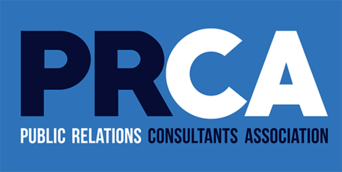The importance of branding and how you can utilise this for your business
Every brand makes a promise, whether it means to or not. On the surface, branding might seem like it only consists of elements such as your logo and design, but in reality, your brand represents the identity of your business. Branding has always been fundamental to the success of a business, but it may be more important now than ever before.
Before entering the market, you need to know and understand why your business exists in the first place. In a world where the news cycle is already packed with stories of start-ups, you need to establish what your business has to offer, how it stands out from competitors and how it contributes to your target audience. Branding is crucial because not only is it what makes a memorable impression on consumers, it also allows them to know what to expect from your company. It is a way of distinguishing yourself from competitors and elucidating what it is you offer that makes you the better choice or company to work with. Your brand is built to be an authentic representation of who you are as a business, what you represent and how you wish to be perceived.
It may take some time before you get your brand’s messaging right. However, this is time well spent when it comes to building a comprehensive strategy for success. There are a few things you can focus on to make sure you’re on the right track. Ask yourself:
Is your key messaging compelling and easy to understand?
There is a structured process to branding, one where you must first identify and establish who and what you want to be to your stakeholders. Following this, spend time creating and curating your brand strategy to position yourself correspondingly and then consistently manage elements that influence your positioning.
Once your strategy is designed, it should be consistent across elements such as visual identity, content and products as well as highlighting services offered, customer service support, human relations as well as experiences. Combined, these components begin to stick out in your stakeholder’s mind, slowly building up a perception of your brand.
Is the personality of your brand represented well in your messaging?
Understanding and using branding only means that you take charge and try to control what that reputation looks like to the public. This is why it is recommended to consider branding from the very beginning of your business. Also known as reputation, the perception of your brand is the association that an individual has in their mind in regard to your brand.
Brand consistency is the delivery of brand messaging in line with the brand identity, values, and strategy over time. Consistency means your target audience is being exposed to core messages, visual branding, and other brand elements repeatedly, which can help to solidify brand recognition.
Branding do’s and don’ts
Building, maintaining and protecting your brand is arguably your most important business investment. While branding is a lifelong process, there are some steps you can take on board early on to engage effectively with your stakeholders.
DON’T just plan for tomorrow → DO think long-term.
- If you want to avoid a series of costly rebranding exercises in the future, it’s essential to think long-term. If you are caught up in focusing too much on the present, your next campaign or your next announcement, you are rushing the process and losing sight of the long-term vision.
- Brand strategy is all about the big picture planning. It allows you to factor in your goals and use the here and now to build towards those goals in a logical way. Spending the time planning for change in the beginning, identifying your key messages and stakeholders will help you to stay clear on an unnecessary and costly future rebrand.
DON’T rush the process → DO invest in the process
DON’T forget your roots → DO remember where you’re going
- The everyday consumer is increasingly investing in “brand narratives”. This is more than just your sales pitch or your USP, this is your identity, your background as well as your brand’s voice. Effectively, this is the way in which you are communicating with your audience and internal team, this is undoubtedly reflected in everything you do.
- Notably, it is just as important as where you’re going, it’s hugely important to stakeholders where you’ve been. It’s favourable in the market to have a background story that your customers and clients can get behind. Whether it’s where the idea for your product or service came from, or how it helps your customers, stakeholders are invested in the process.










